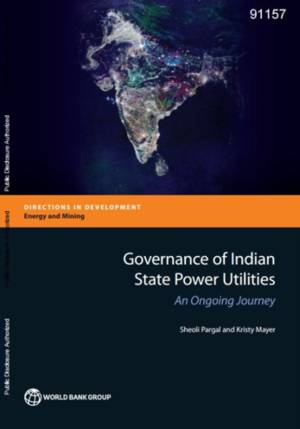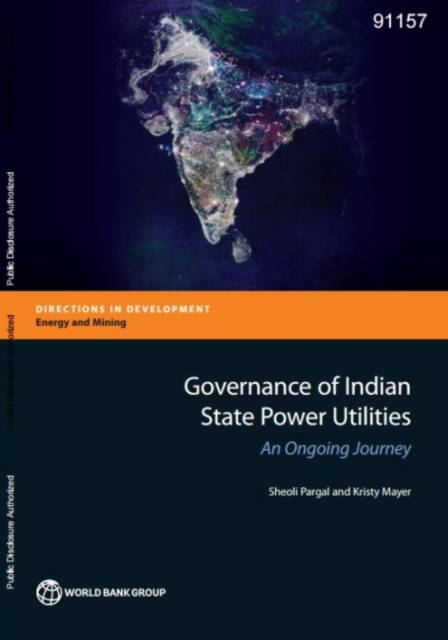
- Afhalen na 1 uur in een winkel met voorraad
- Gratis thuislevering in België vanaf € 30
- Ruim aanbod met 7 miljoen producten
- Afhalen na 1 uur in een winkel met voorraad
- Gratis thuislevering in België vanaf € 30
- Ruim aanbod met 7 miljoen producten
Zoeken
€ 50,95
+ 101 punten
Omschrijving
"This World Bank review, Governance of Indian State Power Utilities: An Ongoing Journey, is a first attempt to systematically examine the quality of corporate and regulatory governance in the Indian power sector. Considering that much of the poor performance of utilities reflected internal and external shortfalls in governance, India's Electricity Act of 2003 mandated unbundling and corporatizing the vertically integrated state electricity boards, along with establishing independent regulators at the center and in the states. The aim was to create a more accountable and commercial performance culture. A particular motivation was the need to keep the state government at arm's length from utilities and regulators alike. This review assesses aspects of corporate governance that would be expected to increase the internal and external accountability of utilities; the institutional design of state-level regulation; and the extent to which regulators have implemented key elements of their mandate. In addition, it examines the correlation between the adoption of recommended corporate governance practices and utility performance, and between regulatory governance and utility performance. It finds that while unbundling the electricity boards has progressed quite well on paper, actual separation and functional independence of the unbundled entities is considerably less than it appears-and clearly identifying the contributions of individual entities in the service value chain and holding them accountable for their performance remains difficult. Corporatization has been unable to insulate utilities from state interference because boards remain state dominated, lack sufficient decision-making authority, and are rarely evaluated on performance. Also, the regulatory environment has not sufficiently pushed utilities to improve performance. State electricity regulatory commissions have been established in all states, but a lack of accountability and autonomy and limited technical capacity have restricted their ability to create an independent, transparent, and unbiased governance framework for the sector that balances consumer and investor/utility interests."
Specificaties
Betrokkenen
- Auteur(s):
- Uitgeverij:
Inhoud
- Aantal bladzijden:
- 144
- Taal:
- Engels
- Reeks:
Eigenschappen
- Productcode (EAN):
- 9781464803031
- Verschijningsdatum:
- 11/10/2014
- Uitvoering:
- Paperback
- Formaat:
- Trade paperback (VS)
- Afmetingen:
- 178 mm x 254 mm
- Gewicht:
- 240 g

Alleen bij Standaard Boekhandel
+ 101 punten op je klantenkaart van Standaard Boekhandel
Beoordelingen
We publiceren alleen reviews die voldoen aan de voorwaarden voor reviews. Bekijk onze voorwaarden voor reviews.











